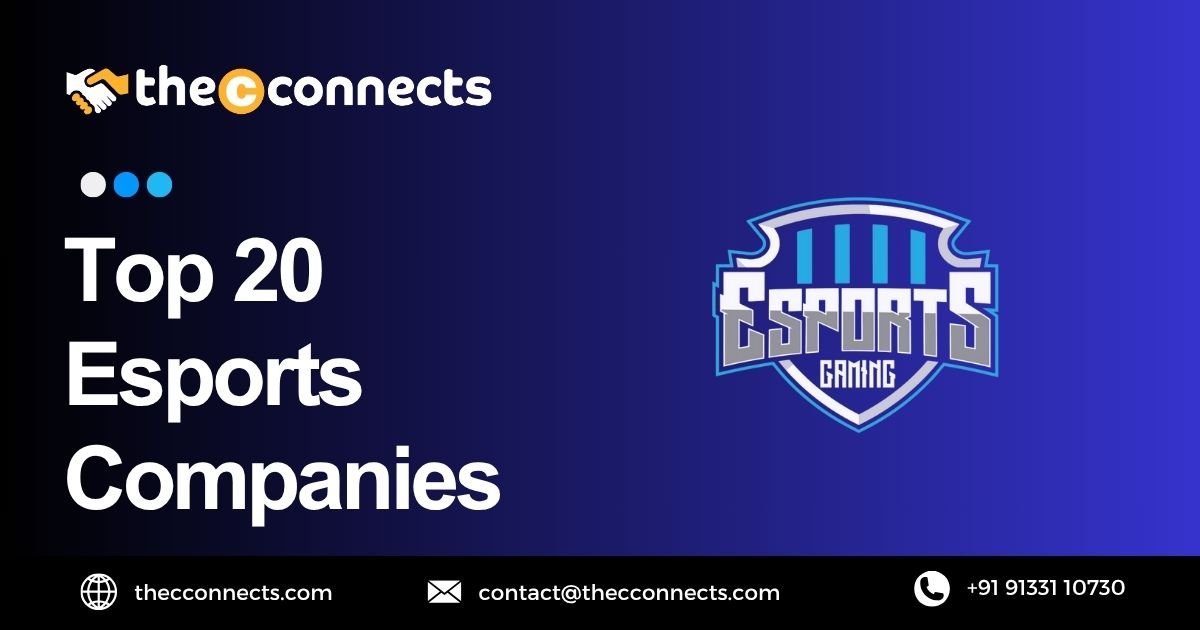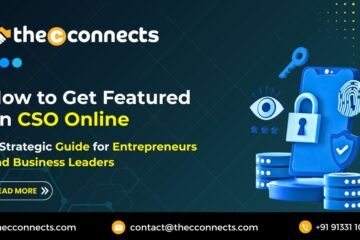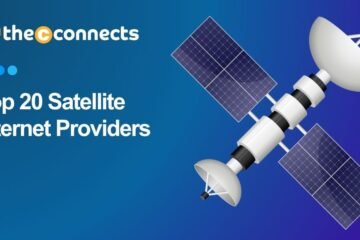Below is a strategic, SEO‑optimized market‑research overview of the Top 20 Esports Companies, spanning game publishers, tournament organizers, team organizations, and platforms. Each profile includes seven sections, company name, founders, founding year, headquarters, product categories, a ~100‑word description, and 5–10 bullet‑pointed key features, crafted to deliver the depth and nuance of senior industry analysis.
1. Riot Games
Founders: Brandon Beck, Marc Merrill
Founded Year: 2006
Headquarters: Los Angeles, California, USA
Product Categories: Game development (League of Legends, VALORANT), live events (Worlds, VCT), broadcasting, merchandise
Description:
Riot Games revolutionized esports with League of Legends, the world’s largest PC title by viewership. Through its in‑house leagues (LCS, LEC, LCK, LPL) and global events (World Championship, Mid‑Season Invitational), Riot has created a sustainable ecosystem, encompassing franchising, team revenue shares, and fan engagement via broadcasts and merchandise. Its later entry VALORANT shows similar ambition, with the Valorant Champions Tour (VCT) scaling rapidly. Riot’s integrated approach to game design, league operations, and digital content makes it a blueprint for publisher‑led esports.
Key Features:
- Proprietary leagues with franchise revenue‑sharing
- World Championship draws 100 M+ unique viewers
- VALORANT Champions Tour global circuit
- Advanced in‑game spectating and viewer tools
- Extensive merchandising and digital skins economy
- Riot Games Studio’s cross‑discipline esports R\&D
2. Valve Corporation
Founders: Gabe Newell, Mike Harrington
Founded Year: 1996
Headquarters: Bellevue, Washington, USA
Product Categories: Game development (Dota 2, Counter‑Strike: Global Offensive), tournament prize funding (The International, Majors), digital distribution (Steam)
Description:
Valve set the standard for community‑driven esports with Counter‑Strike and Dota 2, funding record‑breaking prize pools via crowdfunding (The International). Valve’s Majors for CS\:GO and TI for Dota offer \$1 M‑\$40 M prizes, attracting top teams and casting talent. Steam’s built‑in broadcasting and workshop integration foster grassroots tournaments and modding. Valve maintains a lean, decentralized model, letting third‑party organizers run events under its banners, while ensuring consistent production and prize security.
Key Features:
- The International Dota 2: >\$40 M prize pool via Battle Pass
- CS\:GO Majors with standardized Valve support
- Steam Workshop for community‑created content
- In‑game spectating and prediction tools
- Direct crowdfunding of esports prizes
- Decentralized event model with Valve branding
3. Activision Blizzard Esports
Founders: Activision & Blizzard merger (2008)
Founded Year: 2015 (formal consolidated esports unit)
Headquarters: Santa Monica, California, USA
Product Categories: League operations (Overwatch League, Call of Duty League), broadcast production, franchising, player development
Description:
Activision Blizzard set out to professionalize esports through city‑based Franchised Leagues. The Overwatch League (OWL) and Call of Duty League (CDL) feature permanent teams, home venues, and local fanbases, mirroring traditional sports. Despite early challenges around costs and viewership, these leagues established standards in production value, team marketing, and revenue‑sharing. AB esports also stewards Hearthstone Masters, StarCraft II World Championship Series, and mobile titles, leveraging its global IP portfolio.
Key Features:
- City‑based franchising with 20+ teams
- Multi‑platform broadcasting (Twitch, cable, YouTube)
- High‑budget live‑event production
- Integrated marketing and local fan experiences
- Revenue‑sharing partnerships with teams
- Structured player pathways and academies
4. Tencent Esports
Founders: Ma Huateng (Pony Ma)
Founded Year: 1998 (as Tencent), esports division formalized 2012
Headquarters: Shenzhen, China
Product Categories: Game publishing (Honor of Kings, PUBG Mobile, LoL in China), league operations (LPL, KPL), streaming investments
Description:
Tencent dominates Asian esports through ownership or majority stakes in Riot Games, Supercell, Epic Games, and Activision Blizzard shares. Its homegrown Honor of Kings and Peacekeeper Elite rank among the world’s highest revenue‑generating mobile esports. Tencent Esports runs the League of Legends Pro League (LPL) and King Pro League (KPL), attracting massive Chinese viewership. Strategic investments in streaming platforms (Douyu, Huya) and tournament operators cement Tencent’s vertical integration from IP to broadcast.
Key Features:
- Majority stakes in Riot Games & Supercell
- LPL: world’s leading LoL league by viewership
- KPL: top mobile MOBA league globally
- Ownership in Douyu and Huya streaming platforms
- Mobile‑focused esports R\&D and operations
- Robust IP management and marketing engine
5. Epic Games Esports
Founders: Tim Sweeney
Founded Year: 1991 (esports initiatives since 2018)
Headquarters: Cary, North Carolina, USA
Product Categories: Game development (Fortnite), competitive events (FNCS, Summer Skirmish), platform SDKs
Description:
Epic Games redefined battle royale esports with Fortnite, launching high‑profile tournaments like the Fortnite World Cup (\$30 M prize) and Fall Skirmishes. Its Fortnite Champion Series (FNCS) engages millions through seasonal online qualifiers and mega‑events. By integrating tournament SDKs directly into the game client, Epic empowers independent organizers and content creators to host events, democratizing esports participation. The company’s ethical stance on revenue sharing (support‑a‑creator) further fuels grassroots engagement.
Key Features:
- Fortnite World Cup: \$30 M prize pool
- FNCS seasonal circuit with global participation
- In‑client tournament creation SDK
- Developer‑hosted cash‑prize events
- Support‑a‑creator revenue‑sharing model
- High RTMPE broadcast quality and spectator tools
6. ESL Gaming (ESL & DreamHack)
Founders: Jens Hilgers, Toomas “moof” Horma (ESL), DreamHack founders (Magnus & Martin Persson)
Founded Year: 2000 (ESL) & 1994 (DreamHack); merged 2022
Headquarters: Cologne, Germany; DreamHack HQ in Stockholm, Sweden
Product Categories: Global tournaments (ESL Pro League, DreamHack Open), digital platforms, production services
Description:
ESL, the world’s largest esports organizer, and DreamHack, the largest LAN‑party series, merged under ESL Gaming. Together they produce marquee events, ESL One, Intel Extreme Masters, DreamHack Festivals, across 30+ countries. Their full‑service model covers venue production, broadcast, digital ticketing, and online qualifiers. ESL Gaming’s proprietary tournament‑management platform and DreamHack’s audience‑driven festival experiences create a unique blend of grassroots and pro‑level engagement.
Key Features:
- ESL Pro League and IEM circuits
- DreamHack massive LAN‑festival events
- Venue production and broadcast turnkey services
- ESL Play digital tournament platform
- Online‑to‑offline (O2O) qualifier pathways
- Global footprint across Europe, NA, LATAM, APAC
7. FACEIT
Founders: Niccolo Maisto, Mario Mirabella, Michele Attisani
Founded Year: 2012
Headquarters: London, UK; New York, USA
Product Categories: Competitive matchmaking platform, tournament organization, anti‑cheat technology
Description:
FACEIT powers competitive ladders and tournaments for CS\:GO, Dota 2, Rainbow Six, and FIFA, serving over 30 M players. Its ELO‑based ranking and robust anti‑cheat system elevate match quality. FACEIT hosts the Esports Championship Series (ECS) for CS\:GO and periodic online leagues, often in partnership with publishers and brands. The platform’s API allows third‑party integrations, fueling a vibrant ecosystem of community‑run tournaments and professional qualifiers.
Key Features:
- Ranked matchmaking with FACEIT ELO system
- Industry‑leading anti‑cheat solutions
- ECS CS\:GO league production
- API for custom tournament integrations
- Monthly Hype events with cash prizes
- Enterprise solutions for brands and publishers
8. BLAST Premier
Founders: Nikolaj Nyholm (RFRSH Entertainment)
Founded Year: 2017
Headquarters: Copenhagen, Denmark; Los Angeles, USA
Product Categories: CS\:GO global circuit, live‑event production, digital content
Description:
BLAST Premier offers a franchised CS\:GO league with Spring/Fall Seasons culminating in global finals. Known for high production value and fan‑centric studio shows, BLAST blends arena events with premium digital broadcasts. Its direct streaming partnerships and stylized studio stages set BLAST apart in a crowded CS\:GO calendar, appealing to both hardcore and casual audiences.
Key Features:
- Seasonal league format with global finals
- Premium in‑studio and arena broadcast production
- Stylized stage design and talent integration
- Franchise slots with revenue sharing
- Owned streaming rights across major platforms
9. Major League Gaming (MLG)
Founders: Mike Sepso, Sundance DiGiovanni
Founded Year: 2002
Headquarters: New York, USA; co‑owned by Activision Blizzard
Product Categories: Tournament series (MLG Pro Circuit), online platform, broadcast production
Description:
MLG pioneered console esports in the US, launching the MLG Pro Circuit across Halo, Call of Duty, and StarCraft II. After acquisition by Activision Blizzard, MLG’s events integrated into the Call of Duty League and Overwatch League infrastructure. MLG’s early emphasis on polished broadcast production, live audiences, and player branding laid groundwork for modern franchised leagues.
Key Features:
- MLG Pro Circuit for console titles
- Advanced studio and arena broadcast production
- Online platform for community tournaments
- Early talent‑management and player branding
- Integration into Activision Blizzard’s league frameworks
10. Supercell Esports (Garena)
Founders: Ilkka Paananen (Supercell), Forrest Li (Garena)
Founded Year: 2010 (Supercell), 2009 (Garena)
Headquarters: Helsinki, Finland & Singapore
Product Categories: Mobile esports (Clash Royale, Brawl Stars, Arena of Valor), league operations, in‑game esports features
Description:
Supercell, via Garena in Southeast Asia, built robust mobile esports ecosystems for Clash Royale, Brawl Stars, and Arena of Valor. Garena’s platform handles tournaments, in‑game spectator modes, and regional leagues (e.g., MPL for AoV). By embedding esports features directly into the mobile client and leveraging Garena’s distribution, Supercell achieves mass engagement, millions competing daily in quick‑play formats.
Key Features:
- In‑game tournament integration and spectating
- Mobile Pro Leagues (MPL) for AoV in SEA
- Rapid match‑making and live events
- Monetization via battle‑passes and skins
- Strong community management on mobile channels
11. Team Liquid
Founders: Victor Goossens, Michael “ODEE” Oosting
Founded Year: 2000
Headquarters: Los Angeles, California, USA & Utrecht, Netherlands
Product Categories: Multi‑game pro teams (LoL, Dota 2, CS\:GO, Valorant), Team Liquid Academy, content production
Description:
From StarCraft brood war roots, Team Liquid evolved into one of the most decorated esports orgs, winning multiple Dota 2 and CS\:GO Majors. Its cross‑regional presence includes LCS (LoL), THE INTERNATIONAL (Dota 2), and global circuits. Backed by a robust content studio, Team Liquid delivers behind‑the‑scenes media, podcasts, and training insights. Its Liquid Academy fosters emerging talent across games.
Key Features:
- Championship pedigree in Dota 2 and CS\:GO
- Franchise slots in LCS and VALORANT Leagues
- Team Liquid Academy talent pipeline
- In‑house content studio and digital media
- Cross‑continental training facilities (Netherlands & USA)
12. Fnatic
Founders: Sam Mathews, Anne Mathews
Founded Year: 2004
Headquarters: London, UK & Los Angeles, USA
Product Categories: Pro teams (LoL, CS\:GO, Dota 2, Valorant), merchandise, academy programs
Description:
Fnatic is famed for winning the inaugural League of Legends World Championship (2011) and multiple CS\:GO Majors. A pioneer in team merchandising and fan engagement, Fnatic launched its own apparel line and partner gaming hardware (Fnatic Gear). With Fnatic Rising academies and grassroots tournaments, it cultivates new talent while maintaining a strong social media and content presence.
Key Features:
- Founders’ League of Legends World Champion roster
- Fnatic Gear hardware collaboration (keyboards, mice)
- Fnatic Rising academy and scholarship programs
- Global merchandise store and licensing
- Multi-language content and community events
13. Cloud9
Founders: Jack and Paullie Etienne
Founded Year: 2013
Headquarters: Los Angeles, California, USA
Product Categories: Pro teams (LoL, CS\:GO, Valorant, Fortnite), content & apparel, talent management
Description:
Cloud9 rapidly scaled from a single CS\:GO team to a diversified org across eight games, winning the 2018 NA LCS and multiple domestic titles. Its revenue streams include digital content (YouTube, Twitch), a lifestyle apparel brand, and player management. Cloud9’s talent incubator program fosters influencers and streamers, leveraging cross‑platform reach to build a sustainable, multi‑channel brand.
Key Features:
- 2018 NA LCS champions and MISIONS tin CS\:GO
- Cloud9 logo apparel and merchandise
- C9 YT/Twitch content hubs with 20M+ subs
- Talent incubator for streamers and analysts
- Cross‑game performance analytics and coaching
14. FaZe Clan
Founders: FaZe Temperrr, others via viral CS\:GO trick‑shot videos
Founded Year: 2010
Headquarters: Los Angeles, California, USA
Product Categories: Pro teams (CoD, FIFA, Fortnite, Valorant), lifestyle apparel, content creation
Description:
FaZe Clan emerged from YouTube trick-shot culture into a full‑scale esports and lifestyle brand. With top teams in Call of Duty and Fortnite, FaZe blends competitive success with celebrity collaborations, music partnerships, and its own fashion line. Its 200 M+ global social following powers brand partnerships in gaming, apparel, and entertainment, making FaZe a leader in the “gaming lifestyle” sector.
Key Features:
- Top‑tier CoD champs and Fortnite roster
- FaZe Apparel lifestyle clothing line
- 200 M+ combined social‑media audience
- Celebrity and music collaborations (NFL, artists)
- Branded content studio and events
15. 100 Thieves
Founders: Matthew “Nadeshot” Haag, Drake (co‑owner)
Founded Year: 2017
Headquarters: Los Angeles, California, USA
Product Categories: Pro teams (LoL, Valorant, Fortnite), streetwear apparel, content, media production
Description:
100 Thieves leverages celebrity co‑ownership by rapper‑entrepreneur Drake to build a hybrid esports‑fashion‑media brand. Its League of Legends and Valorant teams have won domestic titles; its apparel line sells out drops in minutes. The “Thieves Lounge” and online original series deepen fan loyalty. 100 Thieves monetizes through game‑day experiences, e‑commerce, and branded content, demonstrating modern brand extension beyond competition.
Key Features:
- 2021 NA LCS Runner‑Up (LoL)
- Drake and celebrity investment for brand equity
- Streetwear drops with limited editions
- Original docu‑series and gaming podcasts
- Thieves Lounge experiential venue
16. OpTic Gaming (OpTic Sports)
Founders: Hector “HECZ” Rodriguez
Founded Year: 2006
Headquarters: Dallas, Texas, USA
Product Categories: Pro teams (CoD, Halo, Valorant), content creation, apparel
Description:
OpTic Gaming, rebranded OpTic Sports, became iconic in Call of Duty esports under HECZ. After a hiatus and merger with Envy Gaming, OpTic teams reclaimed CoD championships. Its flagship content network (OpTic Nation, H3CZ streams) draws millions of followers. By fusing content and competition, OpTic reignited fan engagement and revitalized its apparel and merchandising lines.
Key Features:
- Multiple Call of Duty World Championships
- OpTic Nation content network (YouTube, Twitch)
- H3CZ branded streams and community engagement
- Co‑branded apparel with Envy Gaming
- Fan loyalty and signature “Greenwall” community
17. OG
Founders: Johan “N0tail” Sundstein, Tal “Fly” Aizik
Founded Year: 2015
Headquarters: Copenhagen, Denmark
Product Categories: Pro teams (Dota 2, CS\:GO, Valorant), content, talent development
Description:
OG made history by winning The International Dota 2 championship back‑to‑back (2018, 2019) with unprecedented underdog runs. OG’s ethos centers on flexibility, teamwork, and brand storytelling. It extended into CS\:GO and Valorant with the same core values. OG’s minimalistic logo and emphasis on player‑driven content, vlogs, coaching, have built a devoted global fanbase.
Key Features:
- TI Champions 2018 & 2019 (Dota 2)
- Player‑led content: vlogs, podcasts, tutorials
- Expansion into CS\:GO and Valorant with top rosters
- Talent incubator for emerging players
- Strong community engagement on Discord and YouTube
18. Gen.G Esports
Founders: Kevin Chou, Kent Wakeford, Chris Park
Founded Year: 2017
Headquarters: Los Angeles, California & Seoul, South Korea
Product Categories: Pro teams (LoL, PUBG, NBA 2K), youth development, content
Description:
Gen.G, backed by Alibaba, Samsung, and others, operates teams across global titles, placing in Worlds and major PUBG tournaments. Gen.G’s Gen.G Galaxy academy nurtures young talent in LCK and NEST tournaments. With Gen.GTV content studio and cross‑border brand partnerships, Gen.G bridges Eastern and Western markets, pioneering the pan‑regional esports franchise model.
Key Features:
- LCK franchised spot for LoL team
- Multiple PUBG global championship titles
- Gen.G Galaxy youth‑development league operations
- Gen.GTV high‑production content studio
- Strategic investment from major corporate partners
19. Evil Geniuses
Founders: Michael “ODEE” O’Dell, Alexander Garfield
Founded Year: 1999
Headquarters: Seattle, Washington, USA
Product Categories: Pro teams (LoL, Dota 2, CS\:GO, COD), talent management, apparel
Description:
Evil Geniuses stands as one of North America’s oldest orgs, achieving TI 5 championship in Dota 2 and multiple CS\:GO Major top finishes. Since acquisition by PE firm aXiomatic in 2019, EG has invested in player welfare, analytics, and cross‑title synergies. Its apparel lines and EGTV studio produce narrative-driven content, reinforcing brand loyalty across generations.
Key Features:
- TI 5 Dota 2 world champions
- Top CS\:GO and LoL rosters in NA circuits
- EGTV content studio and documentary series
- Apparel collaborations with streetwear labels
- Data‑driven player performance analytics
20. NRG Esports
Founders: Andy Miller, Shaquille O’Neal, Alex Rodriguez
Founded Year: 2015
Headquarters: Los Angeles, California, USA
Product Categories: Pro teams (Fortnite, Overwatch, Rocket League), talent accelerator, content
Description:
NRG Esports leverages celebrity investors to build high‑profile teams in Fortnite, Overwatch League (San Francisco Shock), and Rocket League. Its SF Shock squad won back‑to‑back OWL titles (2019, 2020). NRG’s NRG Academy fast‑tracks emerging players, while the NRG Network produces talk shows and lifestyle content. The organization’s strategic branding partnerships amplify its reach in mainstream media.
Key Features:
- Back‑to‑back OWL champions (San Francisco Shock)
- Celebrity ownership driving mainstream visibility
- NRG Academy for talent development
- NRG Network talk shows and documentaries
- Cross‑platform content distribution (YouTube, Twitch)
Conclusion:
These 20 esports leaders, spanning publishers, event organizers, platform providers, and premier team organizations, exemplify the multifaceted nature of modern competitive gaming. When evaluating partnerships or investment opportunities, consider each company’s IP control, league structure, content strategy, and fan‑engagement innovations to identify those best positioned to capture future growth in this dynamic industry.
Feedback/Collaboration Enquiries
Have an idea, achievement, or insight that deserves attention? We’re eager to feature businesses making an impact. Let’s turn your success into a story worth sharing.
- 📧 contact@thecconnects.com
- 📱 WhatsApp: http://wa.me/919133110730
- 📞 Call: 9133110730



